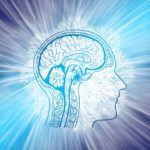Matcha, a finely ground powder derived from grown and processed green tea leaves, has been used over the years for its health benefits, particularly in Asian countries, like Japan.
In a new Japanese study, a team of researchers from Kumamoto University found that Matcha tea contains anti-anxiety effects after testing on rodents. The anxiolytic properties observed in the rodents occur through the activation of dopamine D1 and serotonin 5-HT1A receptors, researchers say.
“Matcha is thought to be beneficial for brain functions; however, only a few scientific studies have shown the effects of Matcha tea powder on psychiatric behavior. We evaluated the anxiolytic activity of Matcha tea powder, and its hot water extract and ethanol extract (CSE) in mice, using the elevated plus maze test,” said Yuki Kurauch, lead author of the study.
For the study, researchers issued an “elevated plus maze” test, used in the past to spot anxiety in rodents and measure any reduction. According to the findings, anxiety exhibited by the rodents decreased after consuming Matcha in the form of either powder or extract. Additionally, upon evaluating the anti-anxiety properties of the various Matcha extracts, researchers noted a stronger effect with the extract derived from 80% ethanol compared to the extract from hot water.
All-in-all, the results show that Matcha tea helps to reduce anxiety by activating dopaminergic and serotonergic systems and provides new insight as to its benefits on well-being.
“Although further epidemiological research is necessary, the results of our study show that Matcha, which has been used as medicinal agent for many years, may be quite beneficial to the human body,” Kurauchi stated.
“We hope that our research into Matcha can lead to health benefits worldwide.”


